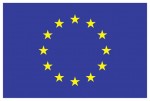This research analyzes propaganda, disinformation and hate models of media and communication in Bosnia and Herzegovina. Its aim is to give an overview of the structural elements in the production, distribution and use of these models and their influence on and support to the existing ethno-national tensions and divisions.
This publication was produced within Resilience: Civil Society for Media Free of Hate and Disinformation, a regional project financially supported by the European Union and implemented in the Western Balkans and Turkey by a consortium of media development organizations led by SEENPM. It is part of a series of publications on the same general topic researched in Albania, Bosnia and Herzegovina, Kosovo, Montenegro, North Macedonia, Serbia and Turkey (all publications are available on the SEENPM website).
The research first briefly explains the disinformation, propaganda and hate models of media and communication and then provides seven examples for better understanding of their organizational modalities, content, financing and ownership patterns. It then looks into the (self)regulation frameworks and efforts of different actors to regulate them and concludes with recommendations for steps that need to be taken by institutions, organizations and the media to minimize the spread of disinformation, propaganda and hate speech and create space for media and communication practices that will stir healthy debate and democratic processes.
Download the publication in English and in national language.
The research found that in Bosnia and Herzegovina, there are numerous examples of media and communication that spread disinformation, propaganda and hate speech.
These are usually sustained through different ownership and financing patterns, often hidden, including local and foreign centres of power, and are used, through selective reporting, for the promotion of ethno-national or religious narratives or political agendas, targeting other ethno-national, political or minority groups.
These models act as echo chambers, where audiences encounter views of their ethno-national, religious or political group and disregard other facts and can further prevent reconciliation processes, state building and development of national cohesion.
The existence of such media can particularly increase tensions among the local population, with heavy war heritage, but could also raise hatred towards other groups, such as migrants and refugees. Ethno-national tensions and divisive ethno-national politics are circumstances that render the existence of such models that make hate speech based on ethno-national affiliation even more serious and increase the probability of violence, the research states.
Bosnia and Herzegovina has regulatory and self-regulatory frameworks for the print, online and broadcast media and a legal mechanism for the prosecution of hate speech, death threats and discrimination, but their implementation has been limited, the research concludes.
The fact-checking platform Raskrinkavanje has been active in the last three years debunking thousands of instances of disinformation and fake content, yet the amount of disinformation is still numerous. Other media watchdog platforms, Analiziraj.ba and Media.ba, publish articles analyzing and pinpointing problematic media content and manners of media funding and ownership.
Professional organizations and the academic community rarely condemn instances of hate speech and disinformation. What is more troublesome, political elites, however, have not voiced their concerns over hate speech and problematic media content but instead are often sources of divisive messages and polarizing and problematic statements. Political centres of power and certain political and religious groups in BiH, but also foreign actors, such as Russia, Turkey, Serbia and Croatia, have ties and support some media that spread propaganda and disinformation, while (self)regulators and civil society efforts have been limited.
In circumstances where professional journalism is in crisis due to a decline in revenues and lack of political support and progressive media policies, the exposure of citizens to professional, ethical journalism is low compared to the content of hate and propaganda models which stem from and further contribute to the divisions in the society, the research concludes.
Download the publication in English and in national language.
Follow RESILIENCE: For Media Free of Hate and Disinformation
www.seenpm.org
Facebook SEENPM
Twitter SEENPM

Funded by the European Union
The regional program ‘RESILIENCE: Civil society action to reaffirm media freedom and counter disinformation and hateful propaganda in Western Balkans and Turkey’ is implemented with the financial support of the European Union by partner organizations SEENPM, Albanian Media Institute, Mediacentar Sarajevo, Kosovo 2.0, Montenegrin Media Institute, Macedonian Institute for Media, Novi Sad School of Journalism, Peace Institute and Bianet.
This article was produced with the financial support of the European Union. Its contents are the sole responsibility of SEENPM and do not necessarily reflect the views of the European Union.


![[INFOGRAPHIC] Hate and propaganda media models in the Western Balkans and Turkey](https://cimusee.org/wp-content/uploads/2021/09/research-1-218x150.png)



